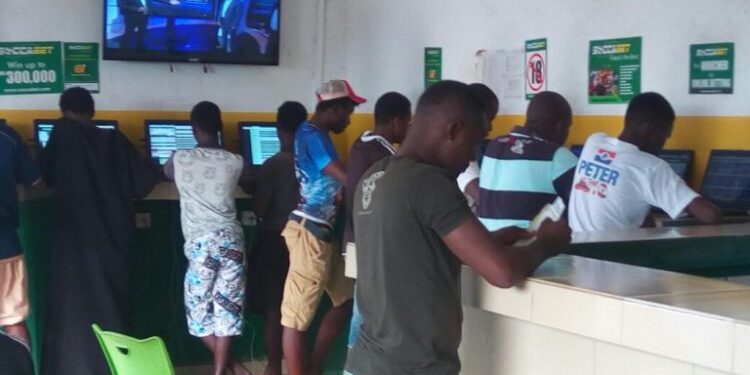The Institute of Community Sustainability has urged the incoming Mahama government to increase the betting tax to 50% to curb the alarming rise in betting activities among the youth.
In a statement signed by the Executive Director, Eric Jerry Aidoo and sighted by Plan B News, the Institute argued that betting poses a significant threat to the well-being of young people.
The statement highlighted how individuals spend excessive amounts of money and time on betting platforms, with some staking nearly 50% of their winnings, only to lose it again.
This proposal contrasts with the vision of President-elect John Dramani Mahama, who has pledged to abolish the existing 10% tax on betting wins.
Speaking about his economic agenda, Mahama stated: “First is resetting the economy for prosperity. In the first 120 days in office, we will hold a national economic dialogue to draw up a four-year fiscal consolidation plan. We will rationalize taxes, abolishing, among others, the obnoxious e-levy, the COVID levy, and the 10% levy on bet winnings.”
Read full statement below
Increase Betting Tax to 50% to Protect Ghana’s Youth-Institute of Community Sustainability.
As the new government takes office, the Institutes of Community Sustainability wishes to bring to their attention a pressing concern that threatens the well-being of Ghana’s youth. The proliferation of sports betting, particularly among young people, has reached alarming proportions. We urge the government to consider increasing the betting tax to 50% to curb this menace.
The current state of sports betting in Ghana is worrisome. Many young people are spending an inordinate amount of time and money on betting platforms, with some staking 50% of their winnings only to lose it all again. This vicious cycle of betting and losing is not only draining the financial resources of our youth but also eroding their productivity and potential.
If left unchecked, this betting epidemic could have severe consequences for our society. Desperate individuals may resort to crime, such as robbery, to fund their betting habits. Companies may also suffer as employees squander their salaries on betting, leading to financial losses and decreased productivity.
In contrast, advanced countries have recognized the dangers of betting addiction and have established rehabilitation centers to provide support and treatment to affected individuals. Unfortunately, Ghana lacks such facilities, with only five psychiatric hospitals available, which are not even up to standard.
Increasing the betting tax to 50% would be a bold step towards addressing this issue. The revenue generated from this tax could be channeled towards establishing rehabilitation centers and providing support services for individuals struggling with betting addiction.
Moreover, a higher betting tax would also serve as a deterrent to young people who are tempted to indulge in sports betting. By making betting more expensive, we can reduce its appeal and encourage our youth to seek more productive and fulfilling pursuits.
In conclusion, we urge the new government to take decisive action to address the betting epidemic that is sweeping our nation. Increasing the betting tax to 50% is a necessary step towards curbing this menace and protecting the well-being of our youth. We owe it to ourselves, our children, and our country to take action and ensure that Ghana does not become a nation of gamblers.










Discussion about this post